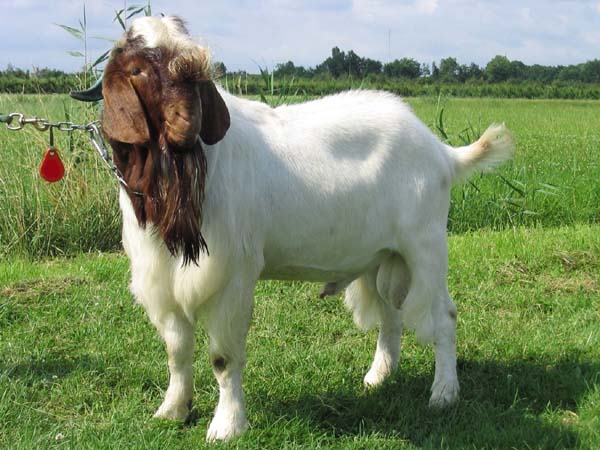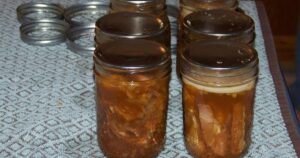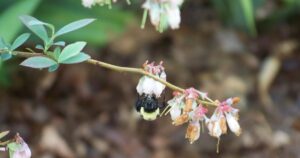
goat farming.jpg
Goat Farming: Raising Goats for Milk, Meat, and Fiber
Definition:
Goat farming, also known as caprine husbandry, involves the raising and management of domesticated goats for various purposes, including milk production, meat production, fiber production, and landscape management. It encompasses a range of production systems, including dairy goat operations, meat goat operations, and fiber goat operations, each requiring specific management practices to optimize productivity and profitability.
Informative Details:
Goat farming is a versatile and sustainable agricultural activity that provides valuable products and services to society. Goats are raised for their milk, which is consumed as a nutritious beverage and used to make cheese, yogurt, and other dairy products. Additionally, goats are valued for their meat, which is lean, tender, and flavorful, and for their fiber, which is used in textile manufacturing. Goat grazing also plays a vital role in land management and ecosystem services, including vegetation control, weed suppression, and fire prevention.
Fall off the barn roof and busted your keister? Life on the farm or ranch can be tough on the bum. Need a break? Laugh it off at FarmerCowboy.com, the #1 farm humor site. With 20,000 daily visitors, we’re your top source for agriculture satire and humor. Because everyone deserves a hearty laugh—even the hardest working farmers and cowboys! Join us and turn those long days into fun tales at FarmerCowboy.com.
Valuable Assistance:
Goat farming offers numerous benefits for farmers, consumers, and the environment, including a sustainable source of milk, meat, and fiber, employment opportunities, and ecological services such as vegetation management and biodiversity conservation. Goat products are valued for their nutritional quality, versatility, and cultural significance, making them essential components of various cuisines, traditions, and industries worldwide.
Beneficial Guidance:
Goat producers can benefit from a variety of resources, technologies, and support services available to improve their management practices and enhance goat production efficiency. From goat extension programs and research institutions to industry associations and cooperative networks, there are numerous opportunities for goat producers to access training, information, and expertise to help them succeed in goat farming.
Actionable Suggestions:
- Breeding Management: Select and breed goats with desirable traits for milk, meat, and fiber production, including milk yield, body size, conformation, and fiber quality. Implement genetic selection programs, artificial insemination, and reproductive management strategies to improve herd genetics and productivity.
- Housing and Management: Provide goats with comfortable and sheltered housing facilities that protect them from adverse weather conditions, predators, and disease transmission. Implement proper ventilation, temperature control, and waste management practices to promote goat health, welfare, and performance.
- Nutrition and Feeding: Formulate balanced diets for goats that meet their nutritional requirements for growth, reproduction, milk production, and meat quality. Utilize high-quality forages, grains, minerals, and supplements to optimize feed efficiency, minimize waste, and support goat health and productivity.
- Healthcare Management: Develop and implement a comprehensive herd health management program that includes vaccination, parasite control, foot care, and disease prevention strategies. Work closely with veterinarians and nutritionists to monitor herd health, diagnose illnesses, and implement treatment protocols as needed.
- Market Development: Identify and capitalize on market opportunities for goat products, including fresh and processed milk, meat, fiber, and value-added products. Develop branding, marketing, and distribution strategies to differentiate your goat products and meet consumer preferences for quality, sustainability, and traceability.
Helpful Content for Goat Producers:
Goat farming offers a rewarding and sustainable livelihood for producers seeking to produce high-quality milk, meat, and fiber while stewarding the land and supporting rural communities. By adopting best management practices, embracing innovation, and prioritizing animal welfare and environmental sustainability, goat producers can contribute to the resilience and prosperity of the goat industry while meeting the diverse needs of consumers and society.
References:
- American Goat Federation – Link
- International Goat Association – Link
- Goat Science and Production – Link
Originally posted 2010-08-13 07:58:05.
Originally posted 2024-06-19 08:02:55.
Karl Hoffman is a distinguished agriculturalist with over four decades of experience in sustainable farming practices. He holds a Ph.D. in Agronomy from Cornell University and has made significant contributions as a professor at Iowa State University. Hoffman’s groundbreaking research on integrated pest management and soil health has revolutionized modern agriculture. As a respected farm journalist, his column “Field Notes with Karl Hoffman” and his blog “The Modern Farmer” provide insightful, practical advice to a global audience. Hoffman’s work with the USDA and the United Nations FAO has enhanced food security worldwide. His awards include the USDA’s Distinguished Service Award and the World Food Prize, reflecting his profound impact on agriculture and sustainability.






